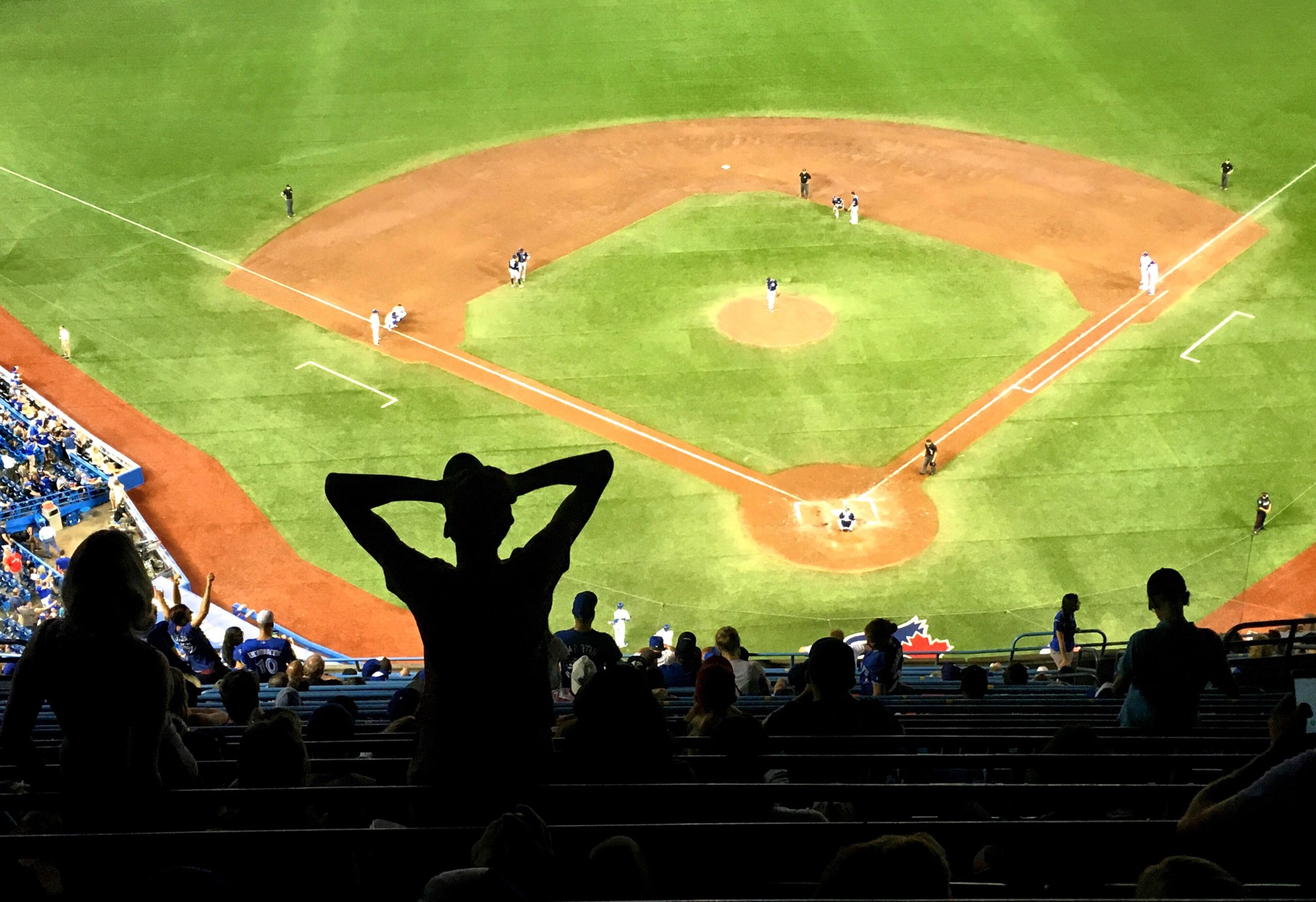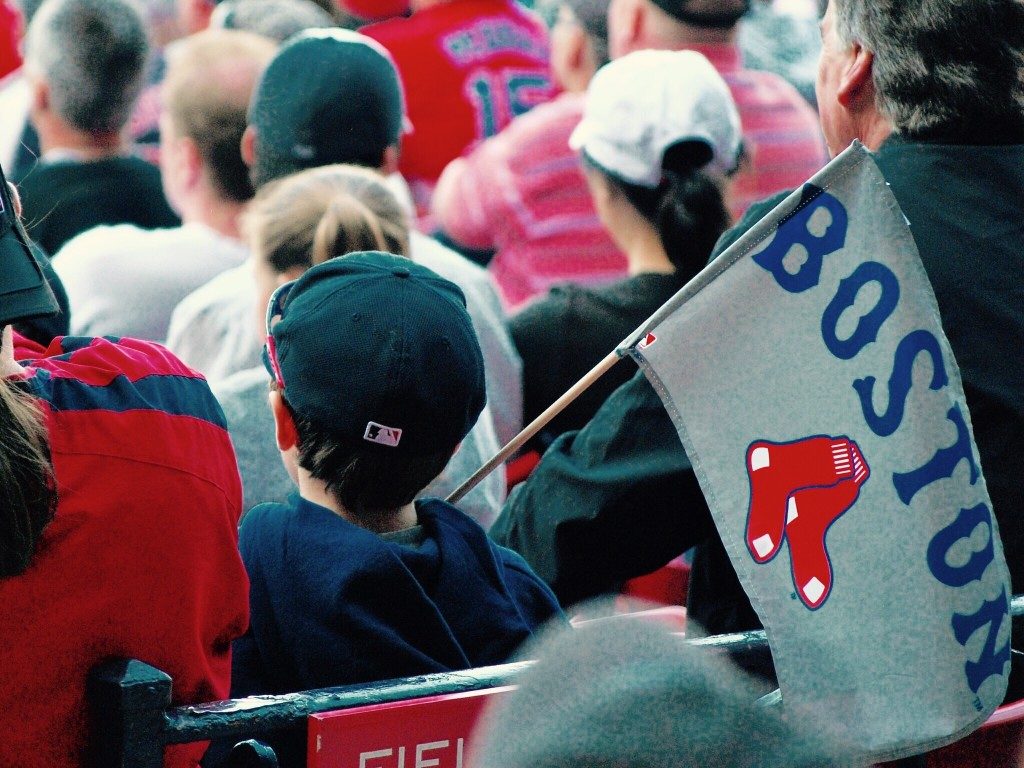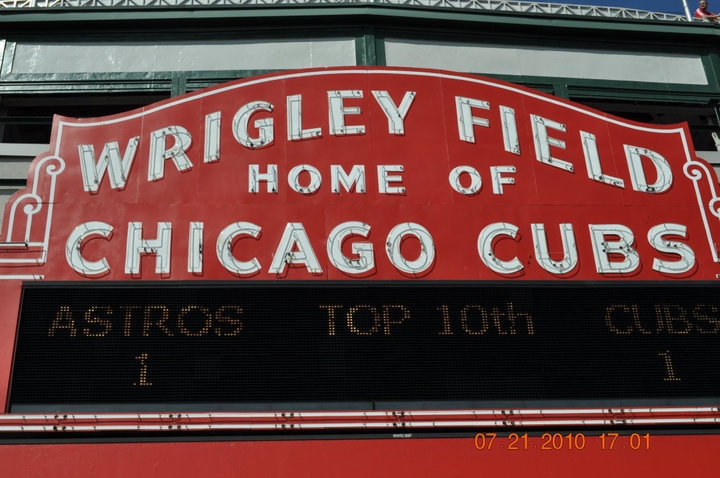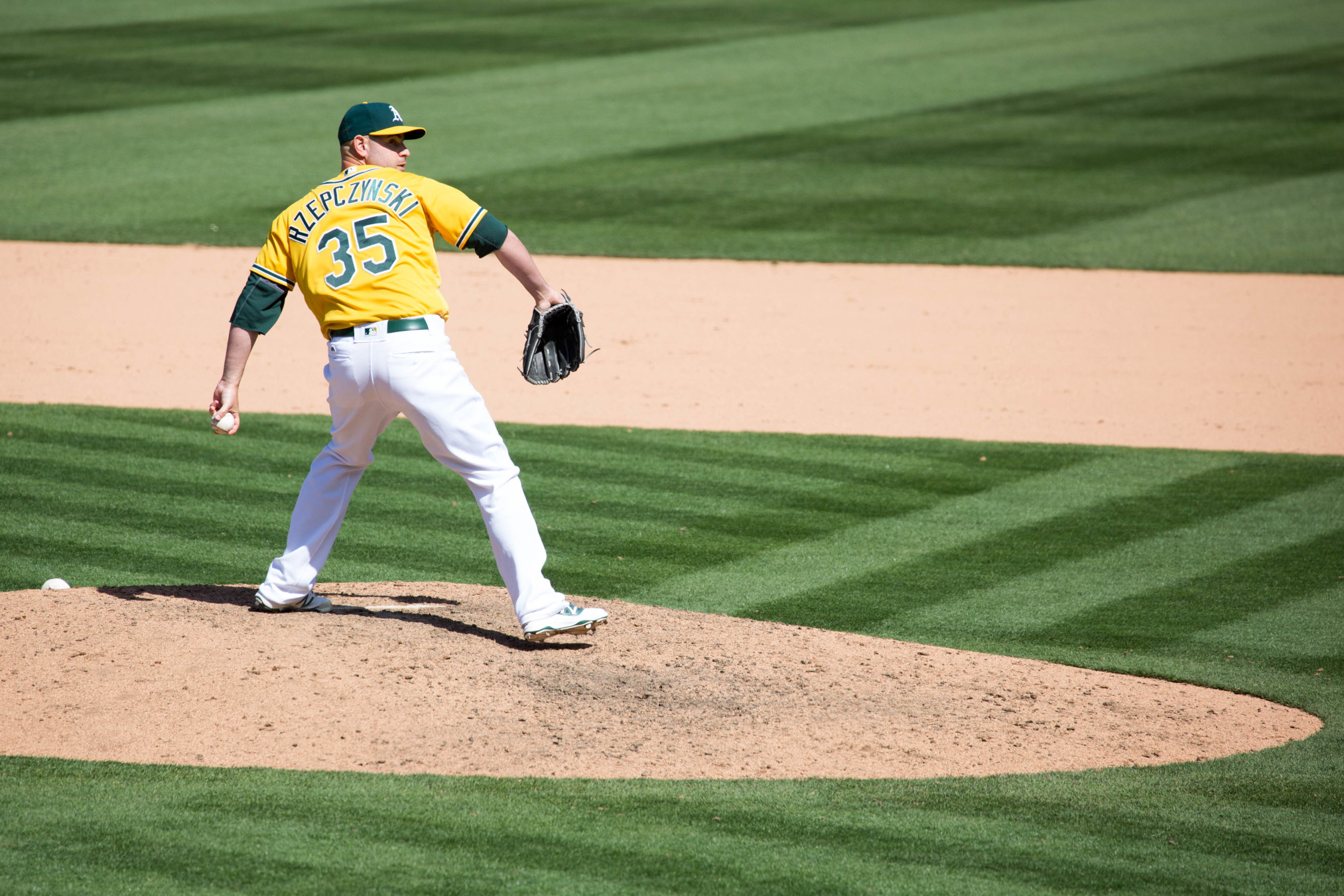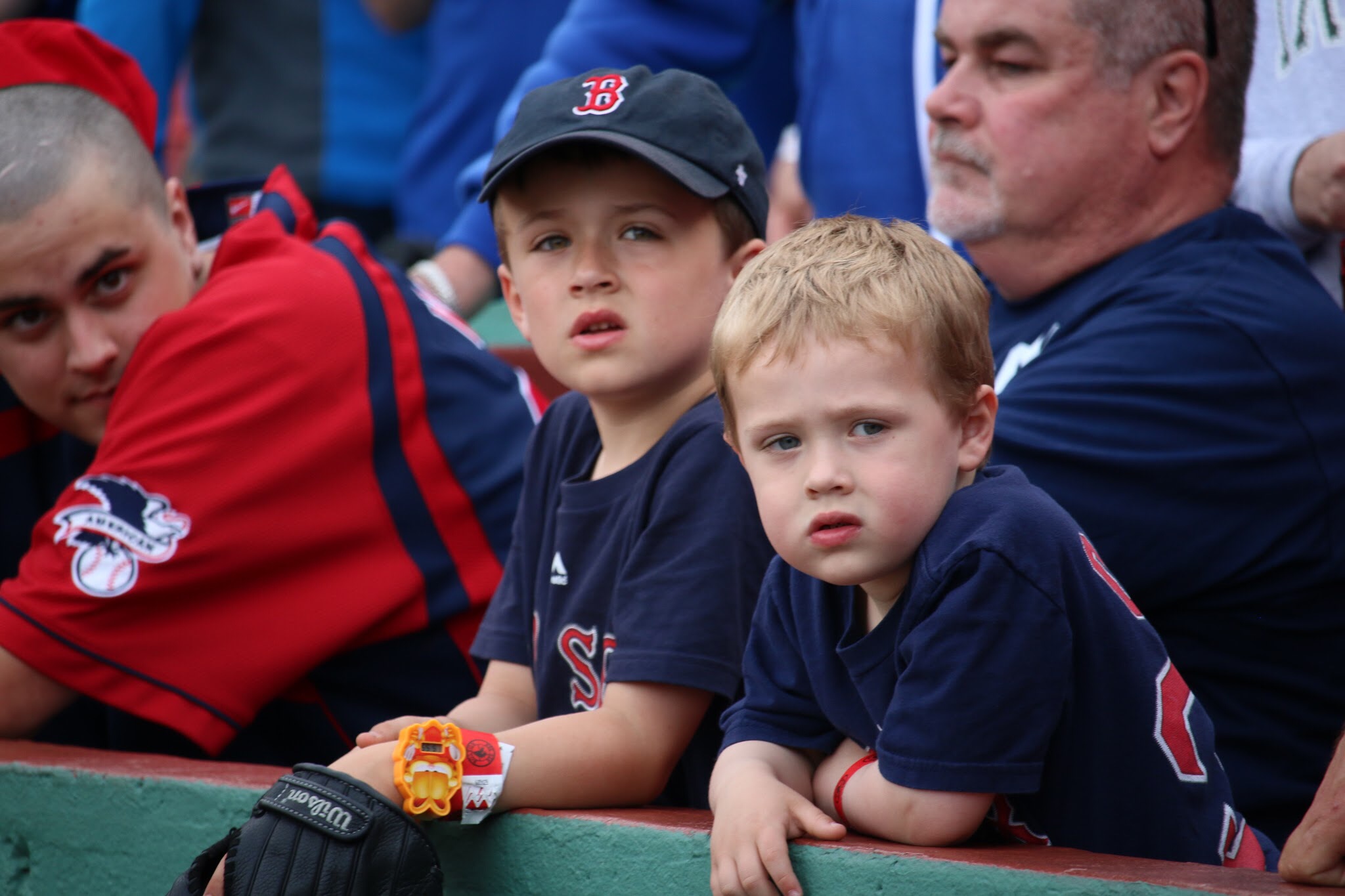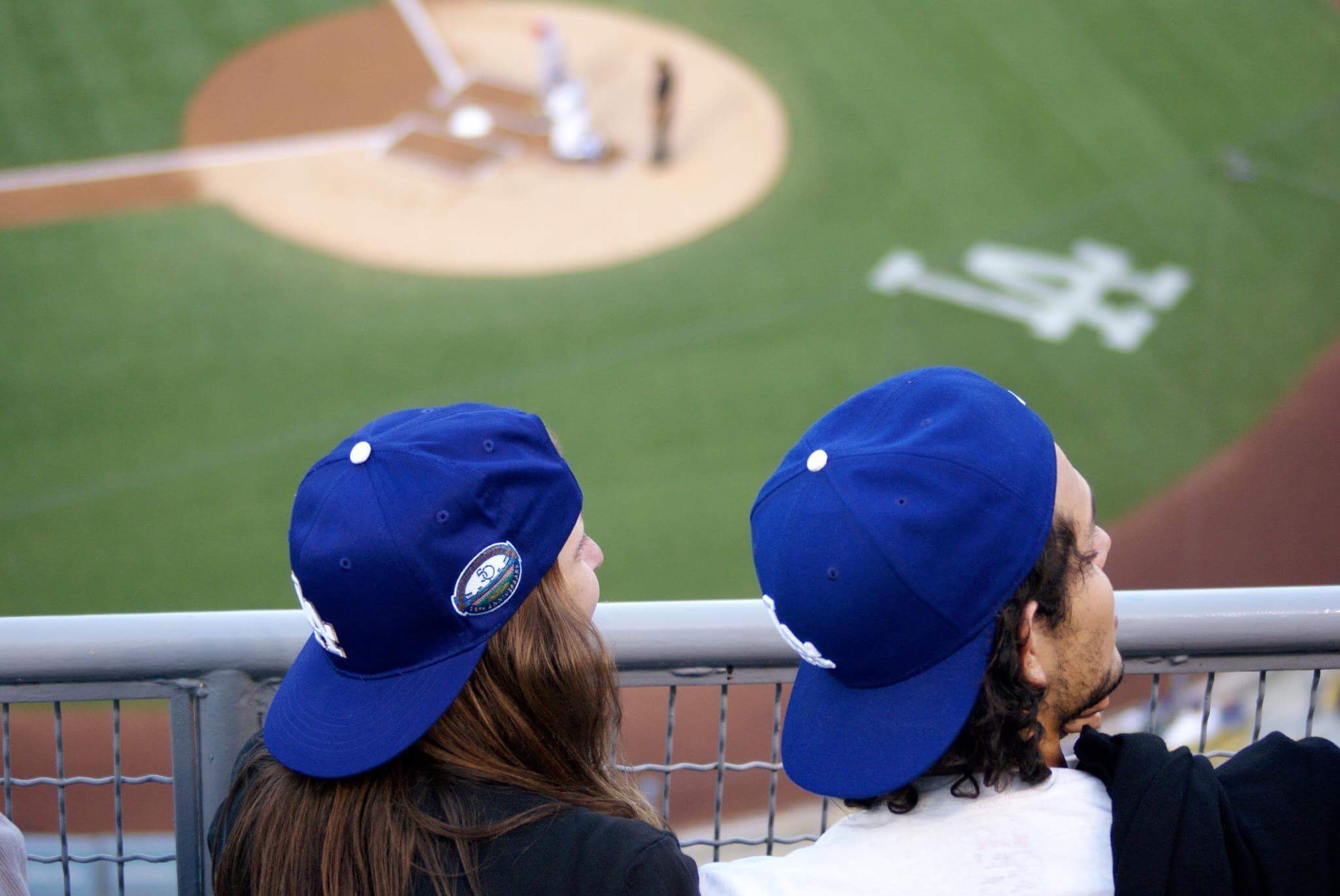At my house, October’s arrival means that all non-essential operations cease until the day after the last game of the World Series. That’s not how you roll? No worries. What follows is a refresher on the basics and three things you need to know in order to start or join any Major League Baseball playoff conversations this month. (Note: as of this writing, the start of the first playoff game is less than 12 hours away.)
Basic information: Major League Baseball (MLB) is organized into two leagues: the National League and the American League. Each league has 15 teams, divided into three divisions, roughly by geography: Central, East, and West. Five teams from each league qualify for the playoffs: the three division champions and the two teams from the league’s remaining 12 teams who have the best won-loss records. These two teams are the “Wild Card” teams.
Each league has an identical three-round playoff format. In the first round, the two Wild Card teams play each other in the League Wild Card Game, with the losing team eliminated from the playoffs. The second round consists of two best-of-five-game League Division Series that match the team with the League’s best won-loss record against the Wild Card game winner, and the two teams with the League’s second and third best won-loss records against each other. In the third round, the two teams that win their League Division Series meet in a best-of-seven-game League Championship Series.
The team that wins the National League Championship Series plays the team that wins the American League Championship Series in a best-of-seven-game World Series. The World Series winner is the MLB champion and, as traditionalists would insist, the best team in the world.
Three Things You Need to Know:
1. America[n League] First!
In 2018, the best team in the world is likely to come from the American League.
Three of this year’s ten MLB playoff teams won more than 100 games during the regular season: the Boston Red Sox, the Houston Astros, and the New York Yankees. The Red Sox, Astros, and Yankees are all American League teams.
The Atlanta Braves, champions of the National League’s Central Division, have the same won-loss record as the Tampa Bay Rays, the team that finished in third place in the American League’s East Division, 18 games behind the Red Sox and not in the playoffs.
Remarkably, at least two American League teams that won more than 100 regular season games will not even advance to the World Series, let alone win it. If the Red Sox, Astros, and Yankees all advance to the American League Division Series, the competition to live up to the expectations created by a 100 win regular season will be furious, and the quality of the baseball being played should be high.
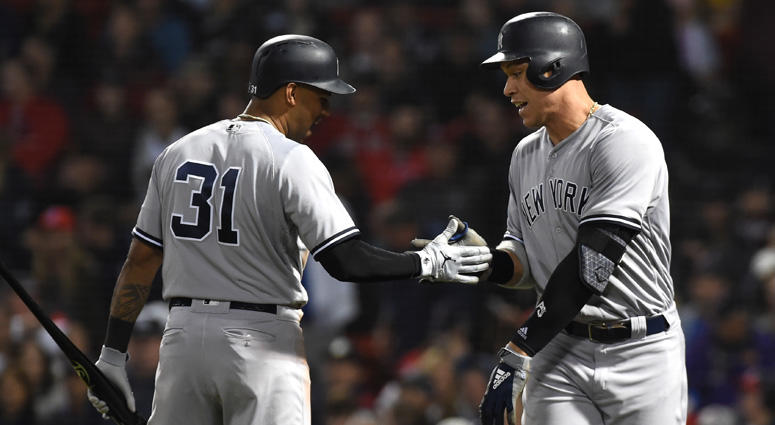
New York Yankees right fielder Aaron Judge (99) reacts with center fielder Aaron Hicks (31) after hitting a home run against the Boston Red Sox. Photo Credit: Bob DeChiara-USA TODAY Sports
In the National League, the parity and familiarity that exists between the playoff teams will generate the excitement. The playoff teams with the best and worst regular season won-loss records finished within six games of each other, with both the Central and West divisions ending the season with two teams tied for first place.
If the Chicago Cubs defeat the Colorado Rockies in tonight’s National League Wild Card game, they will play the Milwaukee Brewers in the National League Division series. Because the Cubs and the Brewers are both National League Central Division teams, they played each other 19 times during the regular season. When both teams ended the regular season tied for first place in their division, they played an extra regular season game against each other to break the tie (the Brewers won, 3-1.)
Can you imagine the intensity of two teams with practically identical records, who have already played each other 20 times in the last six months, competing to advance in the playoffs?
Chicago’s Wrigley Field and Milwaukee’s Miller Park are only 90 miles apart, resulting in the presence of plenty of the road team’s fans at both stadiums. If the Colorado Rockies win tonight’s Wild Card game, defeat Atlanta in the Division Series, and play the Los Angeles Dodgers in the National League Championship Series, it will be more of the same, albeit without the close geographic proximity.
The Braves are a young team that qualified for the playoffs at least one year ahead of schedule, and probably two. If Ronald Acuna Jr., the Braves’ sensational 19 year old rookie, is up to bat or in the on-deck circle, don’t leave the room.
2. What a Relief!
One of the trends that emerged during the 2018 season was teams’ increasing reliance on relief pitching to win games.
Traditionally, teams used a strategy that consisted of having their best pitchers start the game and pitch the entire game, unless the pitcher needed relief because of fatigue or inability to get batters out (hence the term “relief pitcher.”)
Approximately 30 years ago, managers began to use relief pitchers strategically to get the game’s final three outs. Mangers, led by Oakland’s Tony LaRussa, discovered that they could obtain a significant advantage for their teams by bringing in a new pitcher who has the energy of a starter, and who hasn’t already been seen by the opponent’s hitters in previous at bats during the game, to pitch the game’s final inning. Relief pitchers now entered the game in the last inning if their team had the lead, regardless of the starting pitcher’s fatigue or effectiveness. These relief pitchers came to be known as “closers.”
In 2018, managers employed this strategy at unprecedented levels of frequency, and earlier in games than ever before. It is now common for managers to substitute relief pitchers into games in which the starting pitcher is still pitching effectively as early as the fifth inning in order to preserve a lead for the remainder of the game.
Three of the ten playoff teams: the Oakland Athletics, the Brewers, and the Yankees, are known for their outstanding relief pitchers. The Yankees have four relief pitchers who would be the top “closer” for most teams: David Robertson, Zach Britton, Dellin Betances, and Aroldis Chapman. Any team that is trailing the A’s, Brewers, or Yankees after the fifth or sixth inning will find itself trying to mount a comeback against a new fresh, very good pitcher in each inning. Because playoff games often end with final scores that are both close and low, any one of the playoff rounds in either league could be won by the team whose relief pitchers are best able to get the game’s final three, six, or nine outs.
All that having been said, a team has to get the lead before it can preserve it. It is still true that the surest way to do that is to field a starting pitcher who prevents the other team from scoring. The Astros, Red Sox, and Cleveland Indians have outstanding starting pitchers. The Astros have three starting pitchers who would be the “Game One” starter for most of the other playoff teams: Justin Verlander, Gerrit Cole, and Dallas Kuechel. Four of the Indians’ five starting pitchers struck out more than 200 batters during the regular season. Any team who plays the Dodgers will have to face their “ace” starter, superstar Clayton Kershaw, at least twice.
3. Nobody’s Perfect
I stand by my prediction that an American League team will win the World Series.
Having said that, I wouldn’t be shocked if any one of the ten teams in the playoffs won the World Series. I can think of good reasons why each of the ten teams are capable of winning. More importantly, I can identify at least one reason why each team won’t make it past their first round opponent.
Those three 100-win American League teams? The Astros bringing in their closer often has the same effect as Lex Luthor busting out the Kryptonite in a Superman comic book: what once was invincible becomes fragile. The Red Sox have great starters, a great closer, and Mookie Betts, the game’s best position player. Heaven help you, however, if you are a Red Sox fan and manager Alex Cora has to bring in a “set up” relief pitcher to protect a lead in the sixth, seventh, or eighth innings. The Yankees will have outstanding late-inning pitching and will hit the home runs that travel so far, so rapidly that they can barely be seen with the naked eye. Their starting pitchers, however, often cause Yankee fans to hide their eyes.
The Cubs and the Dodgers would rightly be considered to be under-performing assets if they were stocks in your investment portfolio; both teams have rosters with talented players at every position and outstanding managers, and both of them had to play tie-breaker games in order to win their divisions (the Cubs lost, and now will be eliminated from the playoffs if they lose tonight’s Wild Card Game-an absurd result for a team with their talent and depth.) The Rockies usually play well-just well enough to make their fans mad-especially in the playoffs.
The Indians have two of the game’s most talented all-around players, Francisco Lindor (it is impossible not to like this guy) and Jose Ramirez, and an outstanding manager, Terry Francona, to go along with their four 200-strikeout starters. Cleveland’s outfield, however, simply isn’t productive, despite the presence of Michael Brantley. The Indians’ relief pitchers don’t frighten opponents, although that may change if Andrew Miller pitches up to his talent level.
The A’s, Braves, and Brewers will all rely heavily on players who have little or no playoff experience. The A’s and Brewers will succeed if they can reach the sixth inning with a lead, but that is a big if, given the quality of their starting pitchers. Sentiment (the Braves were my late grandfather’s favorite team) and the appeal of anything new and exciting make me want to predict that the Braves will win it all. Sentiment and “fresh” alone, however, won’t beat the Dodgers in the Division Series.
Bonus: Which Team Will Win the World Series?
My wife, a true blue Dodgers fan, asked me this question about two weeks ago. I replied: the Astros will defeat the Cubs in six. The Cubs promptly lost four games in the standings to the second-place Brewers in the regular season’s final ten games, and then lost yesterday’s tie-breaker game. Yes, I managed to both offend my wife and pick a team that failed to perform under pressure, all in one fell swoop. It’s a gift.
After reconsidering everything in order to write this post, I am returning to my original prediction. The Astros will defeat the Cubs, four games to two, and win the 2018 World Series.
Remember that you heard it here first. Unless, of course, the Cubs lose in tonight’s Wild Card game.

Join our community
For access to insider ideas and information on the world of luxury, sign up for our Dandelion Chandelier newsletter. And see luxury in a new light.


